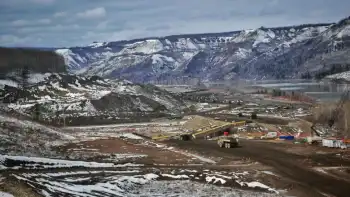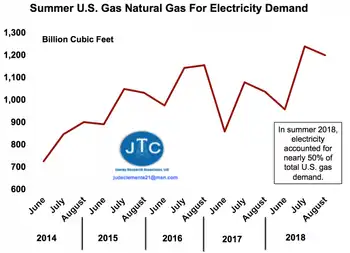Canada puts its nuclear pride on the block
The Harper government confirmed it is calling for bids on the reactor wing of Atomic Energy of Canada Ltd.
With interest coming from a mix of foreign and domestic firms, opposition critics say they're concerned technology created at public expense is at risk of leaving the country.
"They're going to be selling Canadian know-how and intellectual property, probably to a foreign bidder, at bargain-basement prices," said Halifax Liberal MP Geoff Regan. He compared the sell-off to the mysterious cancellation of Canada's iconic fighter jet program in 1959.
"We're concerned that this is effectively Canada's new Avro Arrow," he said.
The sale won't include the research wing of the Crown corporation - namely the Chalk River nuclear facility, which produced most of the word's medical isotopes until it was shut down for repairs earlier this year. The government will also retain responsibility for storing nuclear waste.
Sources close to the industry say it is likely an international competitor such as Paris-based Areva Group or U.S.-based Westinghouse Electric Co. will want the Candu side of AECL.
"The real asset is what might be called its human capital," said one source, who spoke on condition of not being identified.
With the dispersal of Nortel's work force, AECL arguably possesses the most highly educated workers in Canada.
Federal Natural Resources Minister Lisa Raitt made the announcement via a news release, but did not comment publicly. Her statement said the nuclear industry employs 30,000 Canadians and that the government is committed to keeping those jobs in Canada.
The heavy-water nuclear reactors are a point of pride in Canadian engineering history. It's been more than 50 years since C.D. Howe, the powerful energy minister, created Atomic Energy of Canada Ltd. as a Crown corporation that would turn Canadian research into nuclear electricity.
But AECL hasn't sold a new reactor in years and its maintenance costs are spiking. In each of the last two years, Ottawa was forced to spend hundreds of millions in extra funding on AECL to cover costs that were not forecast in its main spending estimates.
Areva Canada president Roger Alexander said the France-based nuclear heavyweight sees a future for the nuclear industry here and is looking to expand its Canadian operations, which now employ 1,100 people and bring in more than $500-million a year. He said Areva isn't in talks with Ottawa at the moment, but have been following Ottawa's actions on the file "very closely."
The Crown assets may still remain in Canadian hands. The list of potential bidders includes Canadian engineering giant SNC-Lavalin Group Inc. and Bruce Power, a Canadian-owned consortium that operates a nuclear station in Ontario. Both companies told The Globe and Mail they will be watching the bid with interest.
The timing of the announcement comes just as the so-called nuclear renaissance appears all but over in Canada even before it began.
The Saskatchewan government announced that it will not get into the nuclear business until at least 2020. The Alberta government also said this week that it won't pump any money into nuclear projects. And last June, the Ontario government put its plans to build new reactors on hold indefinitely, citing concerns about pricing and uncertainty about AECL's future.
"The nuclear renaissance is dead on arrival," said Shawn-Patrick Stensil, an anti-nuclear campaigner with Greenpeace who welcomed news of the sale.
An investment summary on AECL prepared by investment bankers at Rothschild says the corporation's reactor division lost $331-million this year - its first red ink in at least six years.
An industry source said the Harper government is anxious to get out of the nuclear business because AECL's reactor division needs another cash infusion and Ottawa does not want to spend any more money on it. But he said the price Ottawa will fetch is largely dependent on when - and if - Ontario is prepared to renew its own fleet of aging reactors. AECL will be hard-pressed to persuade potential foreign customers to purchase its new Advanced Candu Reactor if it can't close a deal in its home province, say industry observers.
Ontario Energy Minister Gerry Phillips is anxious to meet with Ms. Raitt to determine how the sale of AECL's reactor business would affect the province's plans, said spokeswoman Amy Tang.
Meanwhile New Brunswick, which is home to one Candu reactor, welcomed the news as a "wonderful idea."
"They were a Crown corporation that wasn't being funded properly," Energy Minister Jack Keir said.
Michael Ivanco, president of the Society of Professional Engineers and Associates, which represents employees in AECL's Candu arm, said he's worried about what will happen to the nuclear company's intellectual property. He also said employees have been told AECL will be split in two by April 1.
"Once you break up Humpty Dumpty, you can't put him back together again," he said.
Related News

OPINION | Bridging the electricity gap between Alberta and B.C. makes perfect climate sense
VANCOUVER - By Mark Jaccard
Lost in the news and noise of the federal government's newly announced $170-per-tonne carbon tax was a single, critical sentence in Canada's updated climate plan, one that signals a strategy that could serve as the cornerstone for a future free of greenhouse gas emissions.
"The government will work with provinces and territories to connect parts of Canada that have abundant clean hydroelectricity with parts that are currently more dependent on fossil fuels for electricity generation — including by advancing strategic intertie projects."
Why do we think this one sentence is so important? And what has…





